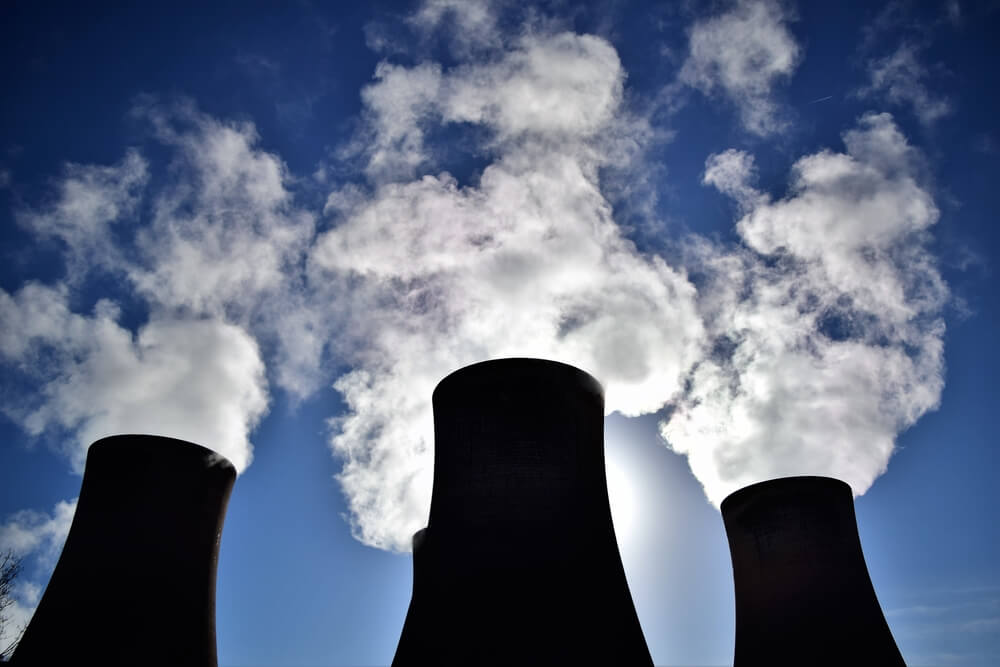If the Biden administration genuinely wanted to get serious about weaning the electric power sector from fossil fuels, it would get serious about nuclear — not just patting it on the head, as it is doing with the government equivalent of “There, there, baby.”
Nuclear was an early victim of the culture wars which started in the late 1960s, and it remains so to this day.
It is incredible that a source of power, a cutting-edge technology, should have been sidelined for more than 50 years because of fear, suspicion, ignorance, and politics.
In the late 1960s, nuclear power became the target of an environmental and political left lash-up. It became part of the environmentalist catechism that nuclear was an evil source of power and must be expunged from the national list of options. The political left didn’t so much as embrace environmentalism as environmentalism embraced the left.
Some environmentalists have had an epiphany, like the Union of Concerned Scientists, which was founded by Henry Kendall, an activist whom I knew well. We were friends who didn’t agree about nuclear. Now the Union of Concerned Scientists is pro-nuclear, but it was at the barricades against nuclear for decades.
It isn’t that the environmental movement doesn’t want to do the right thing. It does. But it has thought that it alone should decide what was right and good for the environment, and often it has been totally wrong.
The environmental movement turned the nation from nuclear to coal. In the 1970s and 1980s, environmental groups advocated for fluidized bed combustion coal plants. I remember them saying that coal eliminated the need for “dangerous nuclear.” I sat through innumerable meetings and had sparing friendships with anti-nuclear activists like Ralph Nader and Amory Lovins.
All presidents have said they favor nuclear power, even Jimmy Carter, who was the most reluctant and did huge damage to the United States’ position as the world leader in nuclear energy and technology. Carter wouldn’t say he was opposed to nuclear, but he did talk about it as a last resort and stopped the plans to build a fast breeder reactor. He also ended nuclear reprocessing, necessitating the disposal of whole nuclear cores, instead of capturing the mass of unburned fuel — thus creating a much larger waste disposal challenge, as well as the need to mine more uranium.
If you believe — and I do — what was said at the COP26 summit in Glasgow, Scotland, now is the time to fix the electric power industry. It can be fixed by building up nuclear capacity so that electricity can be the go-to, clean fuel of the future. It could replace fossil fuels in everything from cement making to steel production to heating buildings. That potential, that future, is awesome and possible.
Energy Secretary Jennifer Granholm should ask her national laboratories to make recommendations on a nuclear power future, not to the detriment of wind and solar power, but embracing them.
Wind power is valuable. But depending on it is a little like having a trick knee: You never know when it is going to go out on you.
Europe has just learned that lesson the hard way. It is in the grip of a major energy crisis with electricity prices quadrupling and natural gas prices headed into the stratosphere as winter approaches. One of the causes of this crisis is that wind speeds through the summer fell to their lowest recorded levels in 60 years, with a total wind drought in the normally gale-wracked North Sea.
We won’t get to a carbon-free future unless we have a robust, committed plan to deploy state-of-the-art nuclear plants across the country. We built them in the 1960s and into the 1970s – 100 of them.
Granholm needs to declare a purpose and to pick the proven winner. It is nuclear, and it has been gravely wounded in the culture wars. She needs to rescue it – with word and deed.

 Follow
Follow
The coal, oil and gas industries does not want nuclear energy, so it is being phased out in the U.S. Who is there that has enough economic and political clout to defend nuclear energy? No one.
To address climate change concerns, the oil and gas industries will endorse windmills and solar energy, which cannot supply more than a few percent of the energy needed. So the all of nuclear reactors will be shut down and oil and gas will continue to supply most of the energy need, at a higher cost than before.
With my very limited and brief understandings of the history regarding nuclear energy I’d have to say without much doubt that public support for nuclear energy waxes and wanes, and I believe there is a resurgence currently to support it. Using climate change issues as leverage in my estimation may help offer additional reasons to support it, yet even had there not been this single important issue, the choice for nuclear energy to surpass and dominate over all three sectors can rely on the scientific facts alone, when contrasted to all other energy sources.
The free market can be a genuine double edge sword and I believe with the global additions from China over the last twenty years, unless and until the United States with it allies makes market corrections in a coherent long range plan with goals to lead, which means government interference to highly favor nuclear reactor development in unprecedented ways the the western world may lose its standing and fall to be dominated and lose its secure and sovereign status.